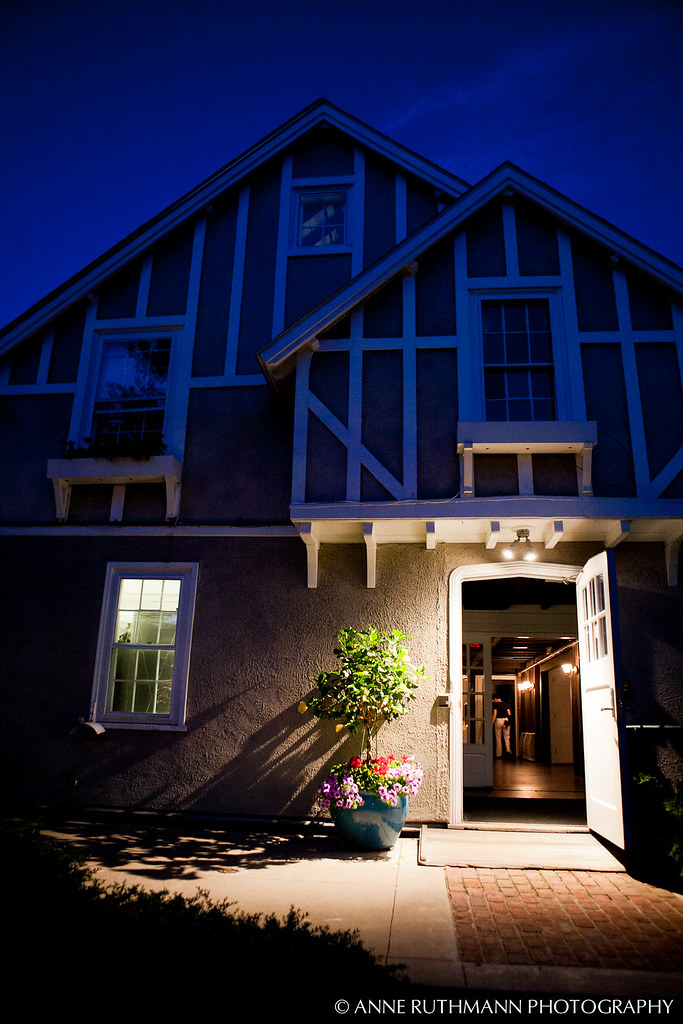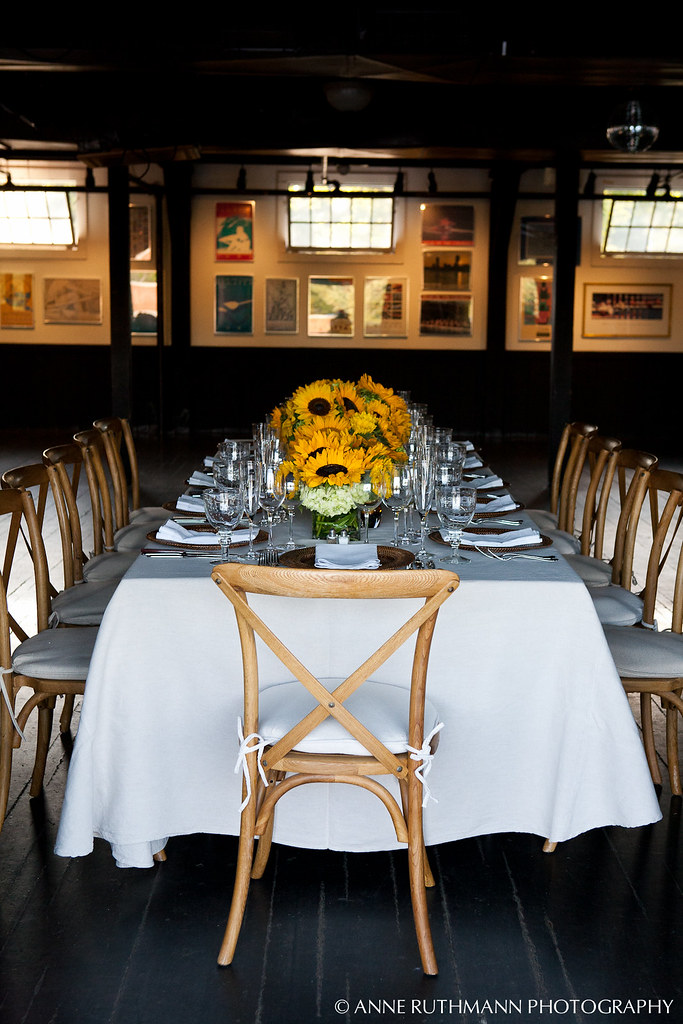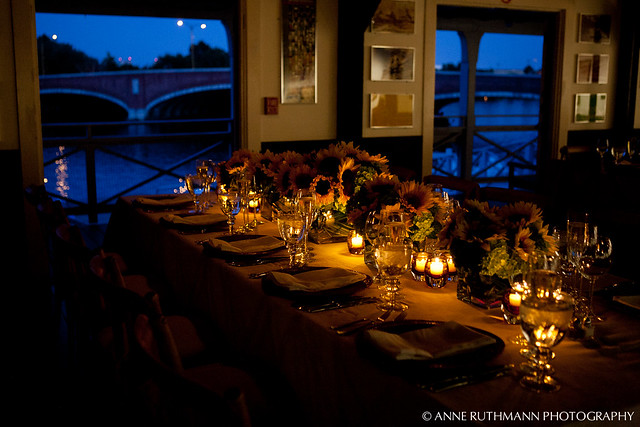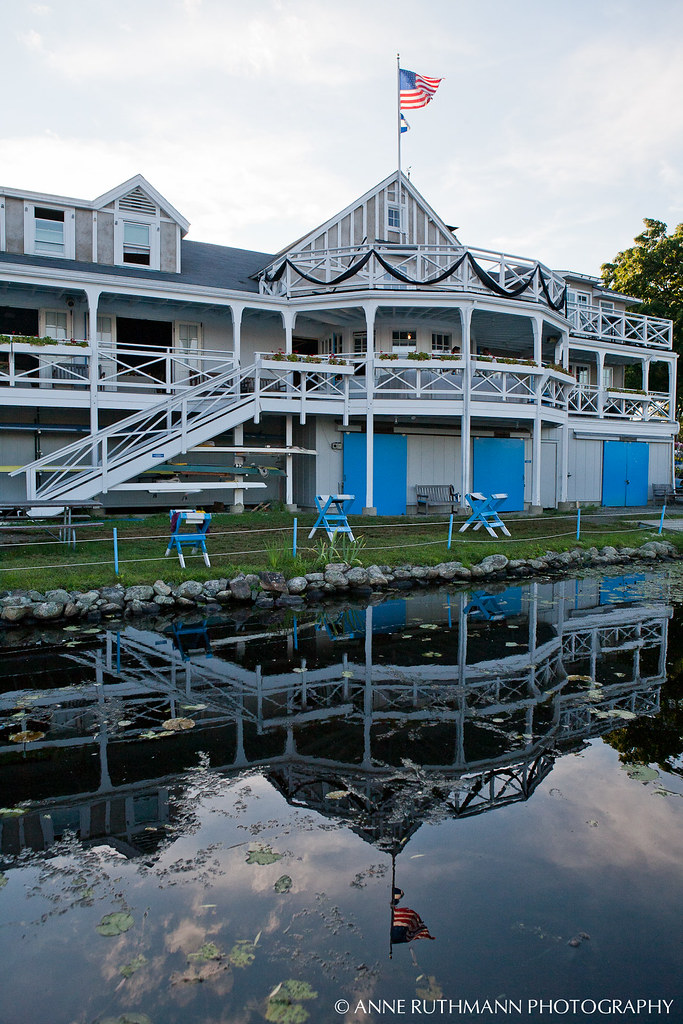Ever wonder what the difference is between an amateur and a professional photographer? I've seen some amateurs that have more expensive equipment than me because they think the camera is what makes images better, only to be sorely disappointed that they still get blurry and out-of-focus images after investing over $10,000 in professional equipment, rather than 10,000 hours in developing their eye and technical understanding of light, composition, and technique, which can be applied to any camera or lighting situation. Likewise, I've seen some AMAZING work from amateur hobby or fine art photographers who dedicate a lot of time to learning the craft, but can't produce that same quality of work when forced into situations they can't control or are outside of their comfort zone, which is why they don't sell themselves as a photographer for hire, only their work as fine art after they've been able to control all the elements.
Much like a painter - we all start with the same canvas - the world around us. We all have the same paintbrushes and tools - the cameras that are manufactured for everyone to purchase and the software anyone can use to edit the images after they've been captured. If you were just looking at the canvas and the tools, or even the quality of work after it's been fully controlled and manipulated, you'd be hard pressed to know who's a professional and who's an amateur! So, here are the things I've come to understand as the defining factor between professionals and amateurs...

1. Free Without Expectation, or Paid to Produce On Deadline?
The most obvious difference between an amateur and professional is whether they charge for the work they produce and whether people are actually willing to pay what they charge for what they produce. It seems like such a simple and no-brainer distinction, but the fact is that once people have taken payment to produce something requested by another person, there's a professional responsibility and code of ethics that must be acknowledged and upheld in order to honor that commitment, or the pro takes a hit to future business and referrals. An amateur doesn't need to honor any commitments when they aren't being paid, and they have the freedom to do whatever they want without worrying about whether they got the right shot, did the work well, or delivered according to a promised deadline or standard. There's a lot of freedom in not collecting a fee for your work, because once a fee is collected, so are someone else's expectations and professional requirements.

2. Knowing What Tools Are Right for The Job
An amateur photographer uses the equipment they have, because it's what they have. A professional knows when a job or request will require more equipment, skills, or technical expertise than they have or can offer alone, so they are more likely to rent equipment when they need it rather than owning a bunch of things they don't need for every shoot, hire extra help when they need it, and outsource when they know that it will create a much better result than they have skills to create on their own. It's also the difference between knowing why a $30,000 camera is worth it for one job, but excessive for another job that would be much better suited to a $3,000 camera, and why you might use a filter on a lens for one shot before it's taken but do filtering afterward in photoshop for another shot after it's taken.

3. Knowing How to Use the Tools For The Best Results
Many amateurs don't actually take the time to read their camera manual and understand everything their camera can and can't do. An amateur tends to shoot in one way and not think about any of the technical choices involved in why it might be better to shoot differently. For example, using a camera in full-auto and allowing the camera to make automatic but unskilled decisions that may lead to mediocre or missed results, rather than selectively choosing when it would be best to have more control by using manual, aperture priority, shutter priority, or bulb. The same goes with lens choices. An amateur will often be satisfied with a kit lens because it covers the majority of their needs, rather than understanding why you might want a 50mm prime lens for some things, or a lens that can zoom across its full range at f/2.8.

4. Getting The RIGHT Shot, Not Just ANY Shot
Amateurs are often satisfied with first or second look at a subject and tend to have an "I already got it" mentality after taking a photo, where a professional might take 10 shots an amateur would be satisfied with just to get one image that a professional would be satisfied with. An amateur will quickly move on to the next pretty thing, while a professional might obsess over making the shot better until they're satisfied or absolutely must move on for the sake of time. An amateur will be happy with all images captured from a basic level or position with whatever light and background are already there, where a professional will carefully choose their angles, background, framing, composition, and lighting for their subject. Most amateurs don't have the patience to wait for a better shot to happen, while a professional can sense in advance that there may actually be a slightly better moment, expression, or lighting situation if they just take a little more time and patience to explore the scene in front of them.

5. Editing Is Everything
An amateur is often happy with 80-90% of the images they've taken because they shot it as they saw it and they're satisfied with what they saw to begin with. A professional is often happy with about 10-25% of what they've taken because they saw it one way, then another way, then another way, and finally the way they really thought was best. An amateur will share so much more of their work because it's not about how they saw it, it's about what they saw, where a professional will carve down everything they saw to the very best way of seeing it. An amateur may be happy to throw a quick and easy action or filter on everything, whereas a professional is going to take the time to adjust more than what a filter can do until the image is its best possible representation of the image according to the professional's eye and style.

6. Backups, Storage, and Insurance
When someone doesn't collect money for the work they produce for others, there's no expectation that they'd need to backup their work, store it for any length of time after it's beed delivered, or have on-site equipment backups or insurance in case something goes wrong while they're shooting. There's also no expectation that they'll correct any errors, or provide a reshoot if the shoot just wasn't right the first time. A professional is paid because they are expected to deliver no matter what the conditions are, and no matter what curve balls are thrown at them. If one camera stops working, they have another to the rescue. If one battery fails, they have several others to get them through the rest of the day. If they break a leg before an event, they have backup photographers on call that will fill in for them so their client isn't left high and dry. A professional has a contract and honors it, while an amateur doesn't need to honor anything because there's no risk or reward involved except personal fulfillment.
Hopefully this helps outline some of the major differences between an amateur and professional photographer. Is there anything I left out? What do you think is the difference between an amateur and pro? Leave your thoughts in the comments!
Much like a painter - we all start with the same canvas - the world around us. We all have the same paintbrushes and tools - the cameras that are manufactured for everyone to purchase and the software anyone can use to edit the images after they've been captured. If you were just looking at the canvas and the tools, or even the quality of work after it's been fully controlled and manipulated, you'd be hard pressed to know who's a professional and who's an amateur! So, here are the things I've come to understand as the defining factor between professionals and amateurs...

1. Free Without Expectation, or Paid to Produce On Deadline?
The most obvious difference between an amateur and professional is whether they charge for the work they produce and whether people are actually willing to pay what they charge for what they produce. It seems like such a simple and no-brainer distinction, but the fact is that once people have taken payment to produce something requested by another person, there's a professional responsibility and code of ethics that must be acknowledged and upheld in order to honor that commitment, or the pro takes a hit to future business and referrals. An amateur doesn't need to honor any commitments when they aren't being paid, and they have the freedom to do whatever they want without worrying about whether they got the right shot, did the work well, or delivered according to a promised deadline or standard. There's a lot of freedom in not collecting a fee for your work, because once a fee is collected, so are someone else's expectations and professional requirements.

2. Knowing What Tools Are Right for The Job
An amateur photographer uses the equipment they have, because it's what they have. A professional knows when a job or request will require more equipment, skills, or technical expertise than they have or can offer alone, so they are more likely to rent equipment when they need it rather than owning a bunch of things they don't need for every shoot, hire extra help when they need it, and outsource when they know that it will create a much better result than they have skills to create on their own. It's also the difference between knowing why a $30,000 camera is worth it for one job, but excessive for another job that would be much better suited to a $3,000 camera, and why you might use a filter on a lens for one shot before it's taken but do filtering afterward in photoshop for another shot after it's taken.

3. Knowing How to Use the Tools For The Best Results
Many amateurs don't actually take the time to read their camera manual and understand everything their camera can and can't do. An amateur tends to shoot in one way and not think about any of the technical choices involved in why it might be better to shoot differently. For example, using a camera in full-auto and allowing the camera to make automatic but unskilled decisions that may lead to mediocre or missed results, rather than selectively choosing when it would be best to have more control by using manual, aperture priority, shutter priority, or bulb. The same goes with lens choices. An amateur will often be satisfied with a kit lens because it covers the majority of their needs, rather than understanding why you might want a 50mm prime lens for some things, or a lens that can zoom across its full range at f/2.8.

4. Getting The RIGHT Shot, Not Just ANY Shot
Amateurs are often satisfied with first or second look at a subject and tend to have an "I already got it" mentality after taking a photo, where a professional might take 10 shots an amateur would be satisfied with just to get one image that a professional would be satisfied with. An amateur will quickly move on to the next pretty thing, while a professional might obsess over making the shot better until they're satisfied or absolutely must move on for the sake of time. An amateur will be happy with all images captured from a basic level or position with whatever light and background are already there, where a professional will carefully choose their angles, background, framing, composition, and lighting for their subject. Most amateurs don't have the patience to wait for a better shot to happen, while a professional can sense in advance that there may actually be a slightly better moment, expression, or lighting situation if they just take a little more time and patience to explore the scene in front of them.

5. Editing Is Everything
An amateur is often happy with 80-90% of the images they've taken because they shot it as they saw it and they're satisfied with what they saw to begin with. A professional is often happy with about 10-25% of what they've taken because they saw it one way, then another way, then another way, and finally the way they really thought was best. An amateur will share so much more of their work because it's not about how they saw it, it's about what they saw, where a professional will carve down everything they saw to the very best way of seeing it. An amateur may be happy to throw a quick and easy action or filter on everything, whereas a professional is going to take the time to adjust more than what a filter can do until the image is its best possible representation of the image according to the professional's eye and style.

6. Backups, Storage, and Insurance
When someone doesn't collect money for the work they produce for others, there's no expectation that they'd need to backup their work, store it for any length of time after it's beed delivered, or have on-site equipment backups or insurance in case something goes wrong while they're shooting. There's also no expectation that they'll correct any errors, or provide a reshoot if the shoot just wasn't right the first time. A professional is paid because they are expected to deliver no matter what the conditions are, and no matter what curve balls are thrown at them. If one camera stops working, they have another to the rescue. If one battery fails, they have several others to get them through the rest of the day. If they break a leg before an event, they have backup photographers on call that will fill in for them so their client isn't left high and dry. A professional has a contract and honors it, while an amateur doesn't need to honor anything because there's no risk or reward involved except personal fulfillment.
Hopefully this helps outline some of the major differences between an amateur and professional photographer. Is there anything I left out? What do you think is the difference between an amateur and pro? Leave your thoughts in the comments!








Amazing photos! Food photography is such a skill! Your photos were fabulous. I'd qualify that as a professional :)
ReplyDeleteAll very true. Many of these could apply to other professions as well.
ReplyDeleteThis is nicely explained and a good reality check after being high on making my first shots in full manual this weekend :-)
ReplyDeleteI know couple of amateur photographers that shot better pictures the so called "professional photographs". If you are good - you are good
ReplyDeleteI like white balance on the 2nd image looks great!
ReplyDelete